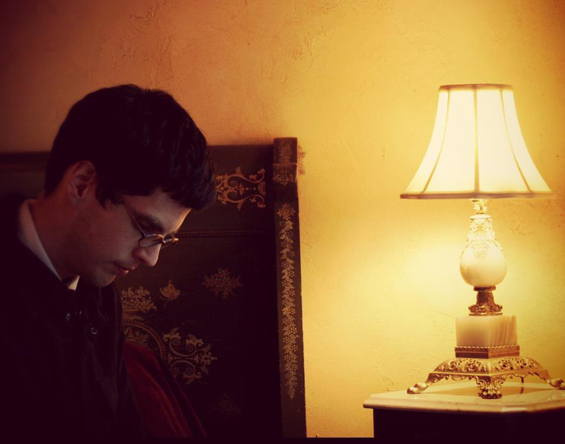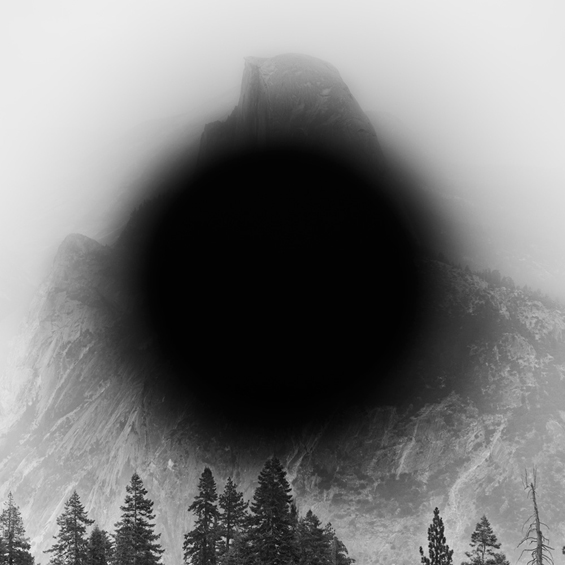

FIVE QUESTIONS WITH KEITH KENNIFF
One of the first interviews to appear at textura after its 2004 founding was with Keith Kenniff on the occasion of his debut Goldmund release Corduroy Road. To say that the Pennsylvania-based artist has accomplished much in the years since would be an incredible understatement. He continues to issue albums under the names Helios, which he established in 2001, and Goldmund, the alias under which he has just released the seventh full-length Occasus. In 2008, Kenniff added a third project to the mix, Mint Julep with his wife Hollie, and manages his own Unseen Records when not creating music for clients such as Facebook, Google, Apple, Canon, Paramount Pictures, NPR, and the BBC. While much of this recent interview with Kenniff centers on Occasus, topics of a more wide-ranging nature were also covered.

1. When I interviewed you for textura in 2005, you were twenty-three and in the early days of your recording career. That talk centered on your debut Goldmund album Corduroy Road, which was preceded by your Helios debut Unomia. Thirteen years later, you're releasing your seventh Goldmund set Occasus. Has the Goldmund style changed since Corduroy Road and if so in what ways? More generally, what are the biggest changes that have occurred in your own creative approach and production process since that first Helios release?
I think the style has evolved, but minimally. I'm not always of the mindset that each album has to display ‘musical growth.' I think the idea can be refined, but I'm okay with a similar aesthetic running through a series of albums or one's entire work. The ethos has always been to keep it as minimal as possible without being meandering or too vague. I've learned a lot about composition and engineering since those first releases, but I have always aimed to keep hold of the innocence of what made those earlier songs work (and try to identify what made them not work).
2. One of the things that most charmed me about Corduroy Road was the simplicity and sparseness of the piano playing, and it strikes me that those same qualities are evident on Occasus, too. How do you hold on to that sense of simplicity and purity when your technique can't help but develop over time?
I think I've purposely kept an aesthetic in mind throughout the project. That's not to say I haven't allowed for variation, but I also have several other projects and I've been conscious not to let them bleed into each other too much. The simplicity is also just a product of my limited technique. I'm formally trained on percussion, but I've purposely not made the decision to study piano in this way; I wanted to keep it impulsive and rough as much as possible.

3. I'd like to step back from the new release to ask you a few questions that relate to the career you've had. One of the things I've noticed in the fourteen years since textura has existed is the huge number of electronic music-related artists who are no longer releasing music or who appear to have left the music business, things that occur less frequently in other genres, be it jazz, classical, rock, or country. Does that strike you as an accurate assessment and if so what do you think the reasons might be that account for it? And more importantly in the way it relates to you, how have you managed to sustain yourself since you started out and remain so engaged and creatively fertile?
I think there are a variety of reasons for that. I've known other musicians in other genres (jazz, rock, classical, and country) who have similarly left the music business. Sometimes it's to start a family; other times people just can't sustain a career financially, they may end up teaching or going back to school for something else, other interests take hold. At one time I contemplated doing the same and almost did, but my film scoring career took off, and I was able to sustain this career and raise a family.
4. Looking back over the fourteen years since Unomia, are there things that have surprised you most about your experiences in the music business, things you didn't expect to see happen that did? Conversely, are there things that turned out exactly the way you thought they might or expected them to?
I think the thing that's been most surprising is that I get to do this for a living. I'm a very hard worker and early on knew music would be a huge part of my life, but that sometimes (many times) does not translate into being able to sustain a financially viable career. I consider myself lucky on a daily basis that I get to indulge in my passion as my ‘day job.' When I was at college studying drums I definitely had the idea that I would be a drummer as my main instrument, but as it turns out most of my work for film and personal work is almost entirely reliant on keyboard skills, and I do very little in the way of drumset work, unless to record a section of a track for the duration of that specific part. I always saw my personal work as being a hobby (albeit one I was very passionate about), but being a musician-for-hire or something more performance-based as part of my way of financial subsistence, which is what I did throughout college. Now it's almost entirely about composition and mixing.

5. Your music has appeared on many different labels, Type. Merck, and Western Vinyl among them, but you also manage your own label Unseen Records, on which a large number of releases have appeared by Helios, Goldmund, and Mint Julep, your joint project with your wife Hollie. Why exactly did you create the label when labels were and are available on which to release your music?
A large part of it is that I saw the landscape of my business (based on licensing and composing for film and the physical world of CDs versus the upcoming digital streaming revolution) changing, and it became beneficial to house much of what I did under the same roof. It allowed for things to be more simple and easy to keep track of while I was building the film scoring part of things, especially when negotiating licensing, which became a bulk of what I did financially with my personal projects since I really wasn't touring as a source of income for those projects. That said, I've been with Western Vinyl for Goldmund material since 2007; Brian Sampson (who runs the label) has long been a champion of that music and really cares about what he does with the label and the music he puts out. He's very open-minded, collaborative, and straightforward.
April 2018![]()